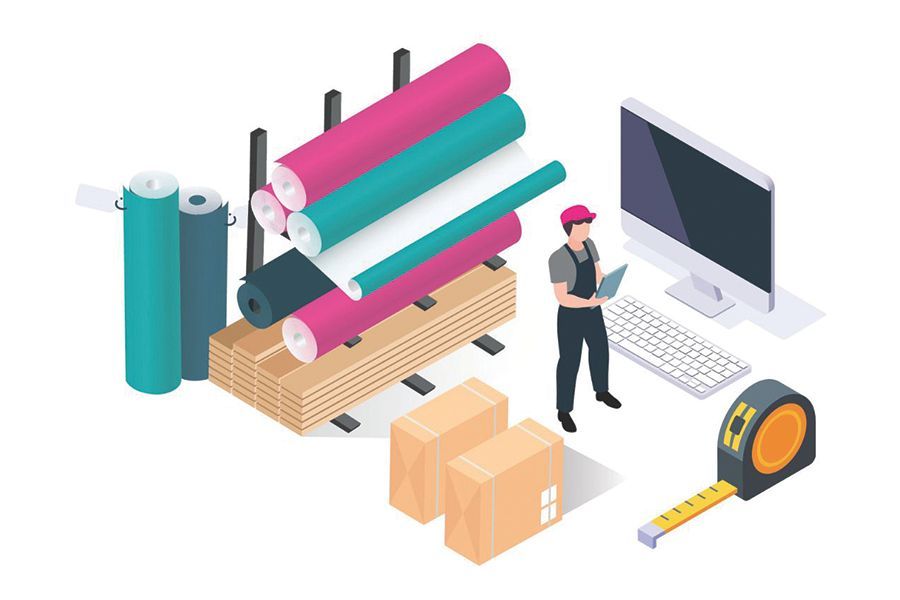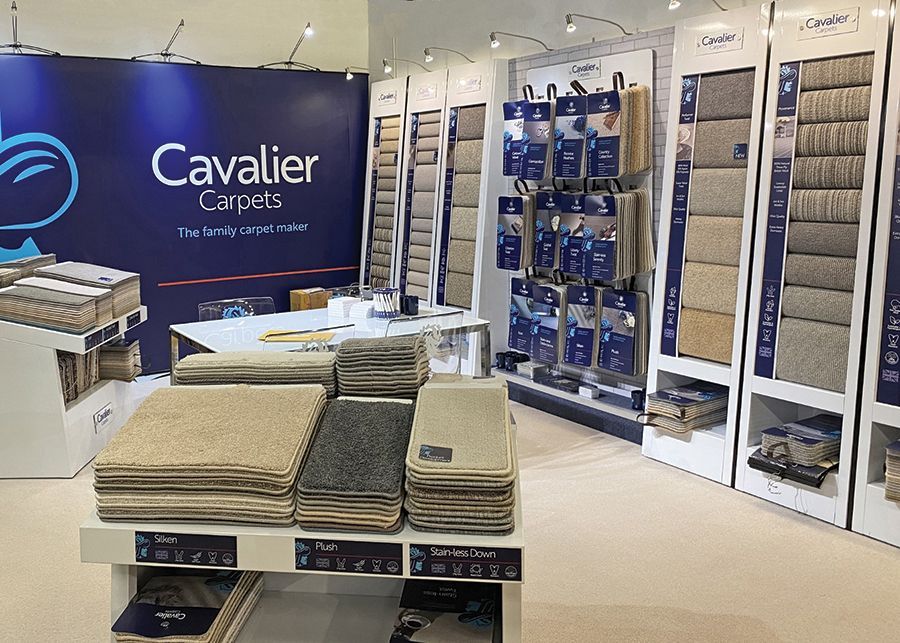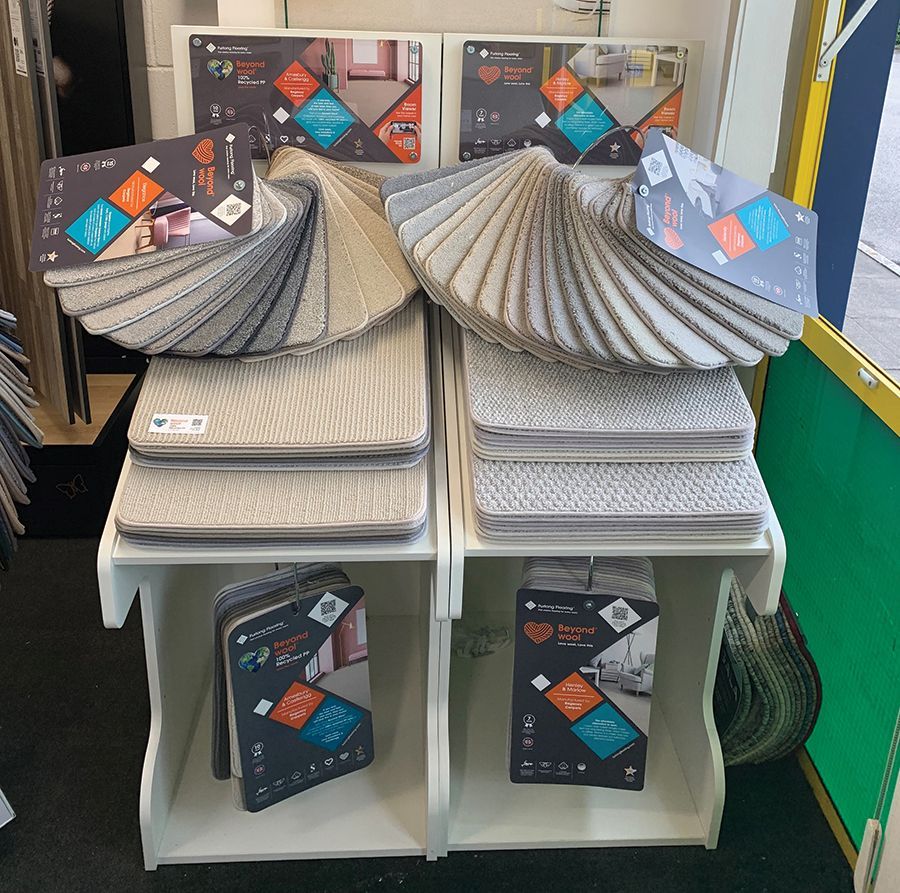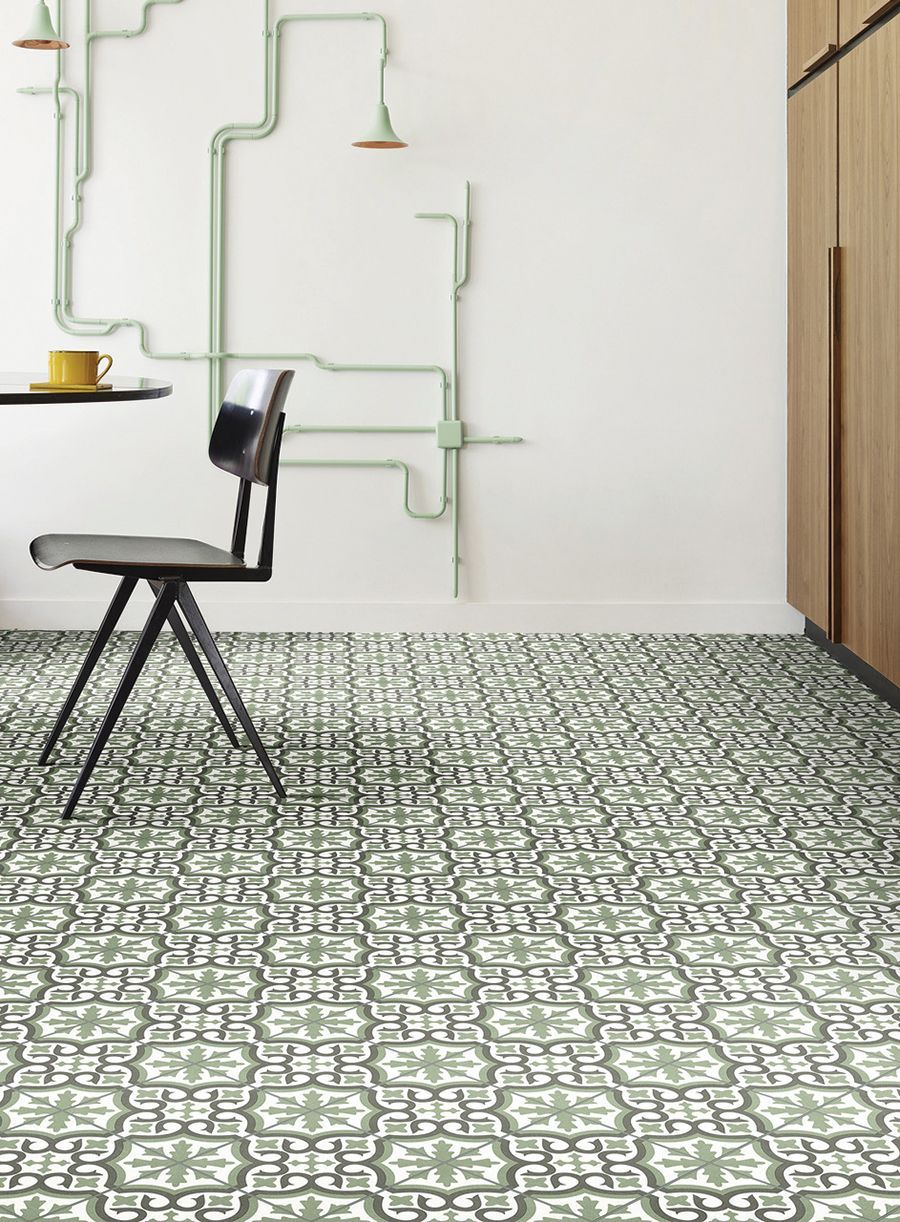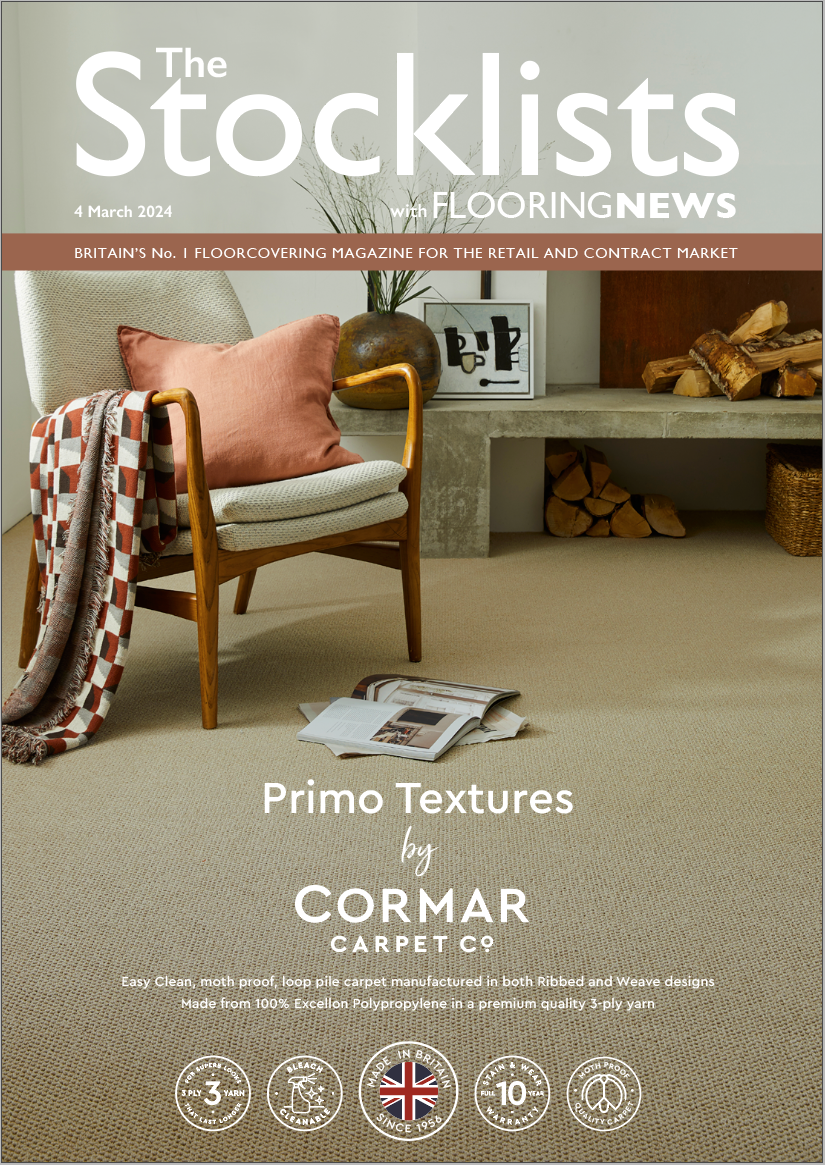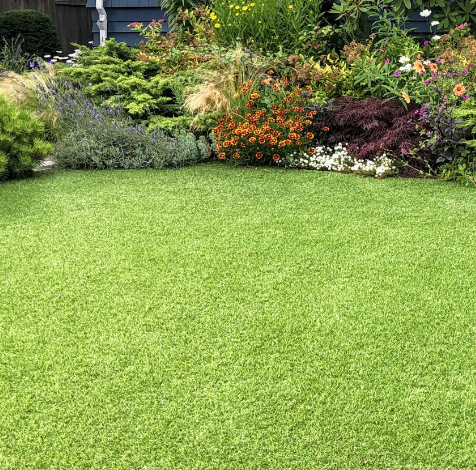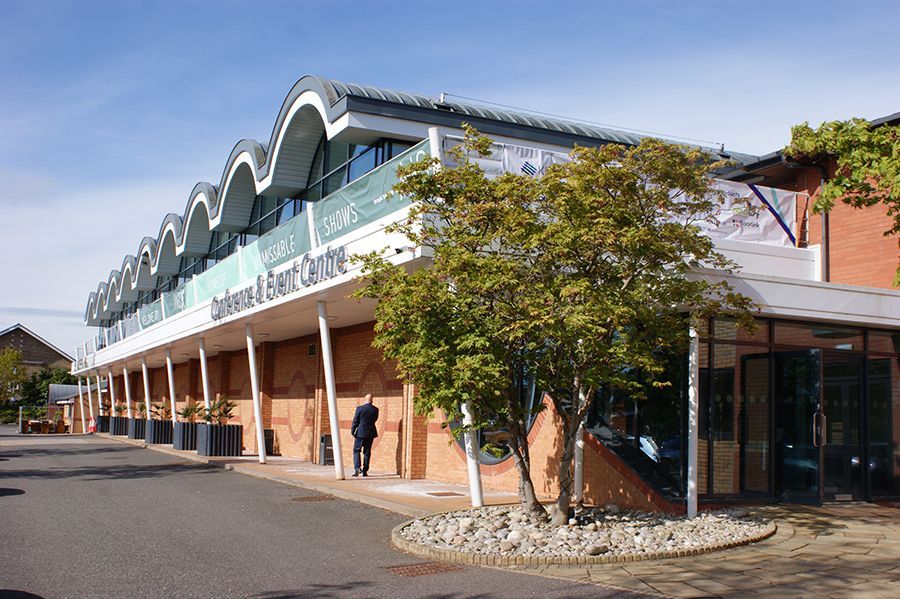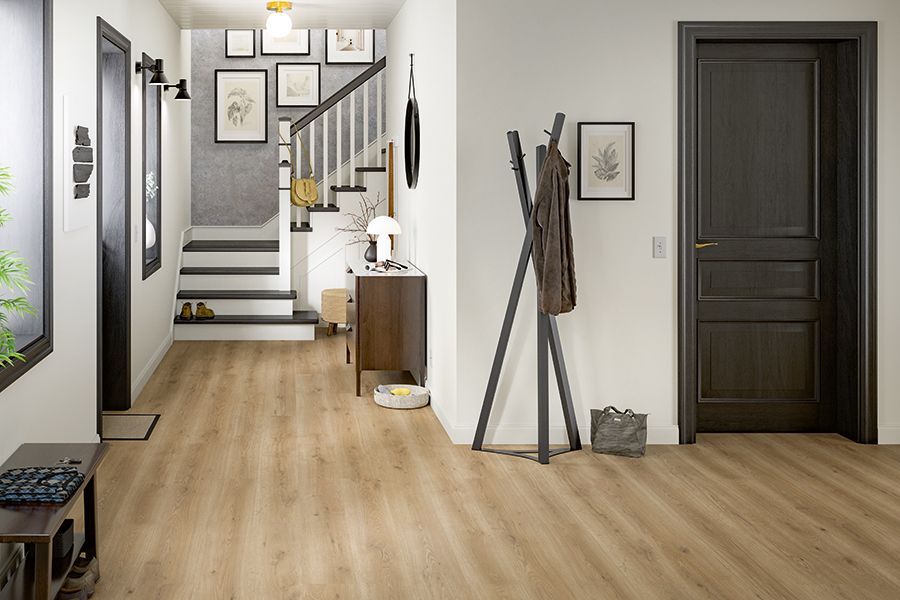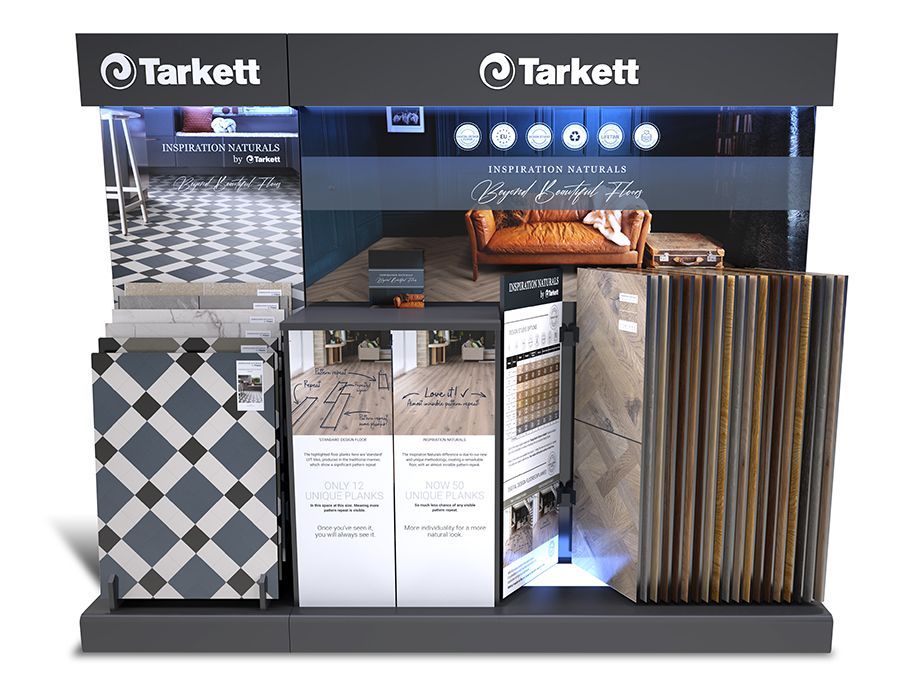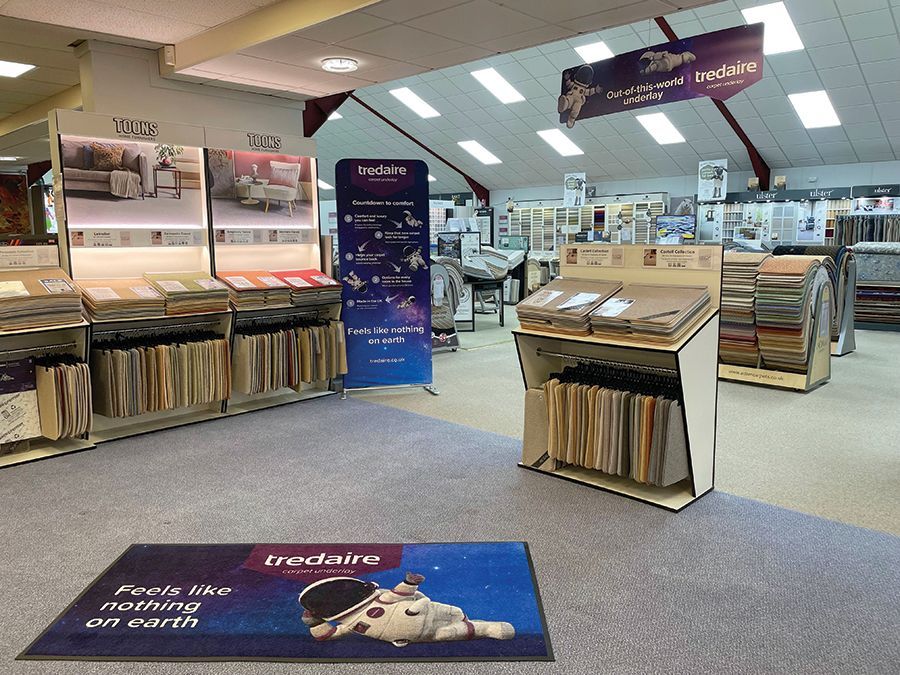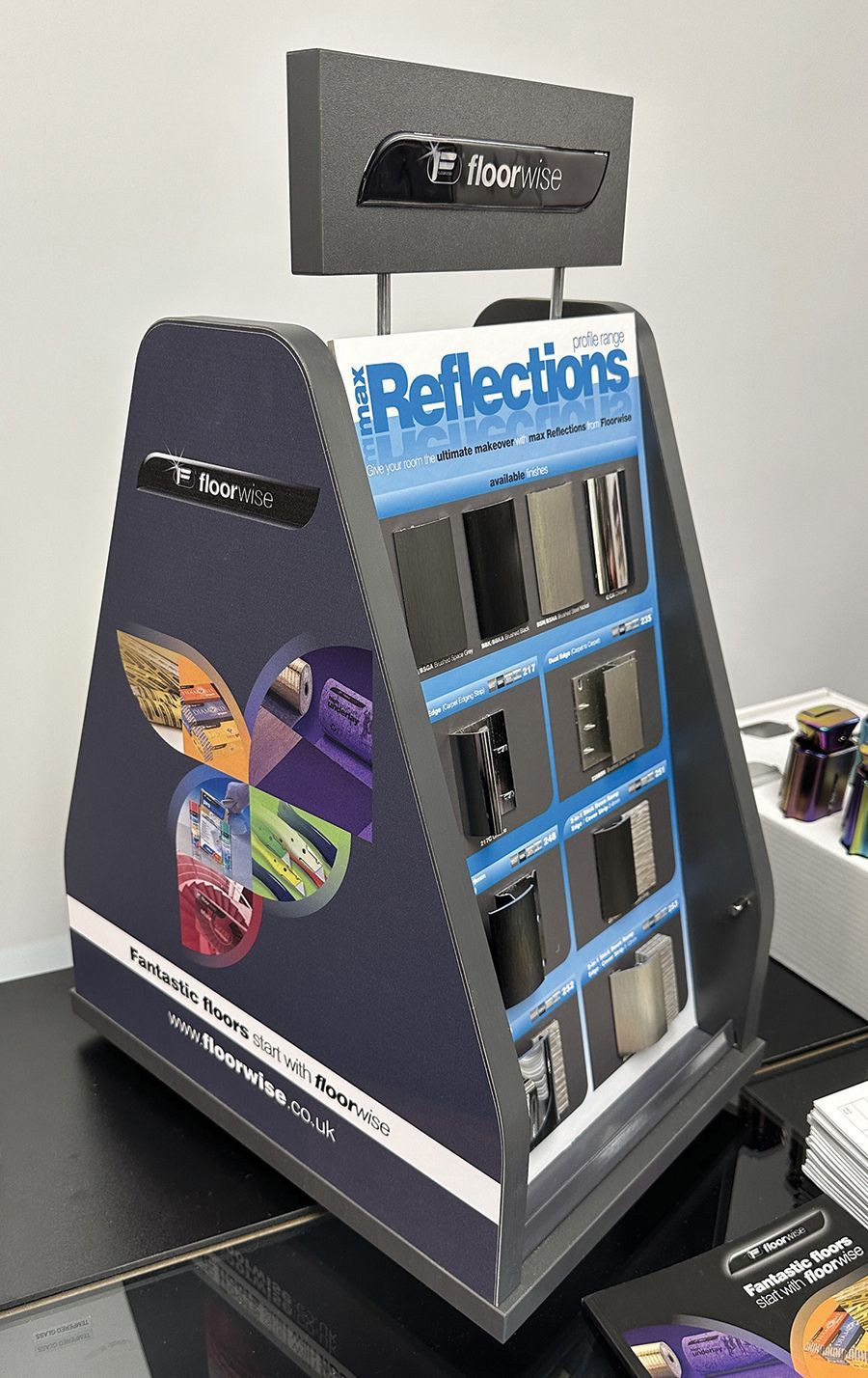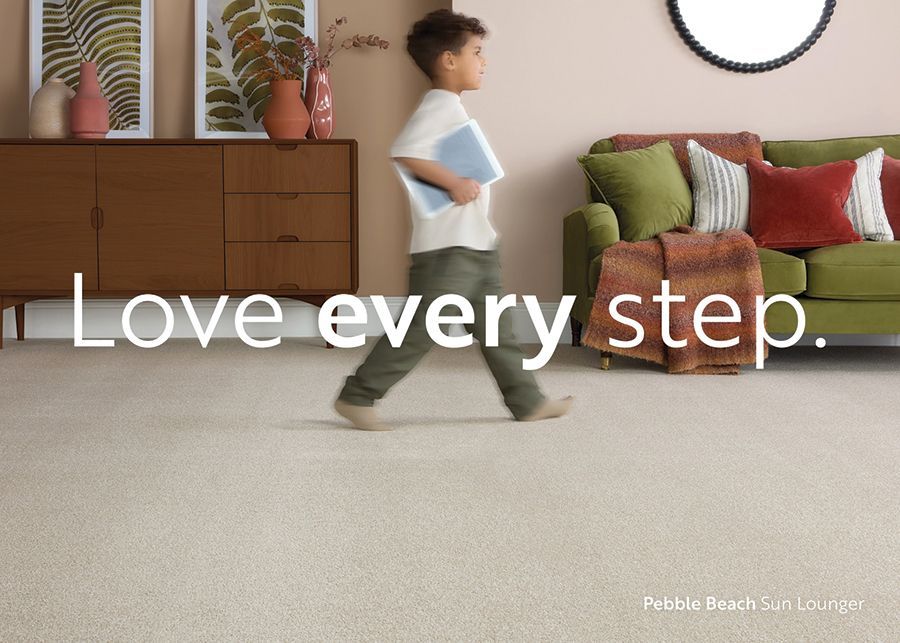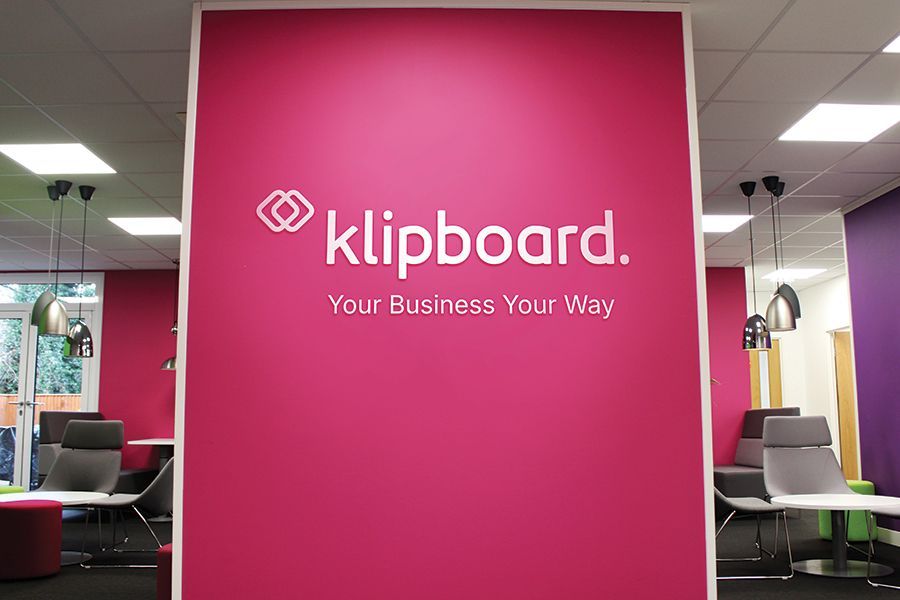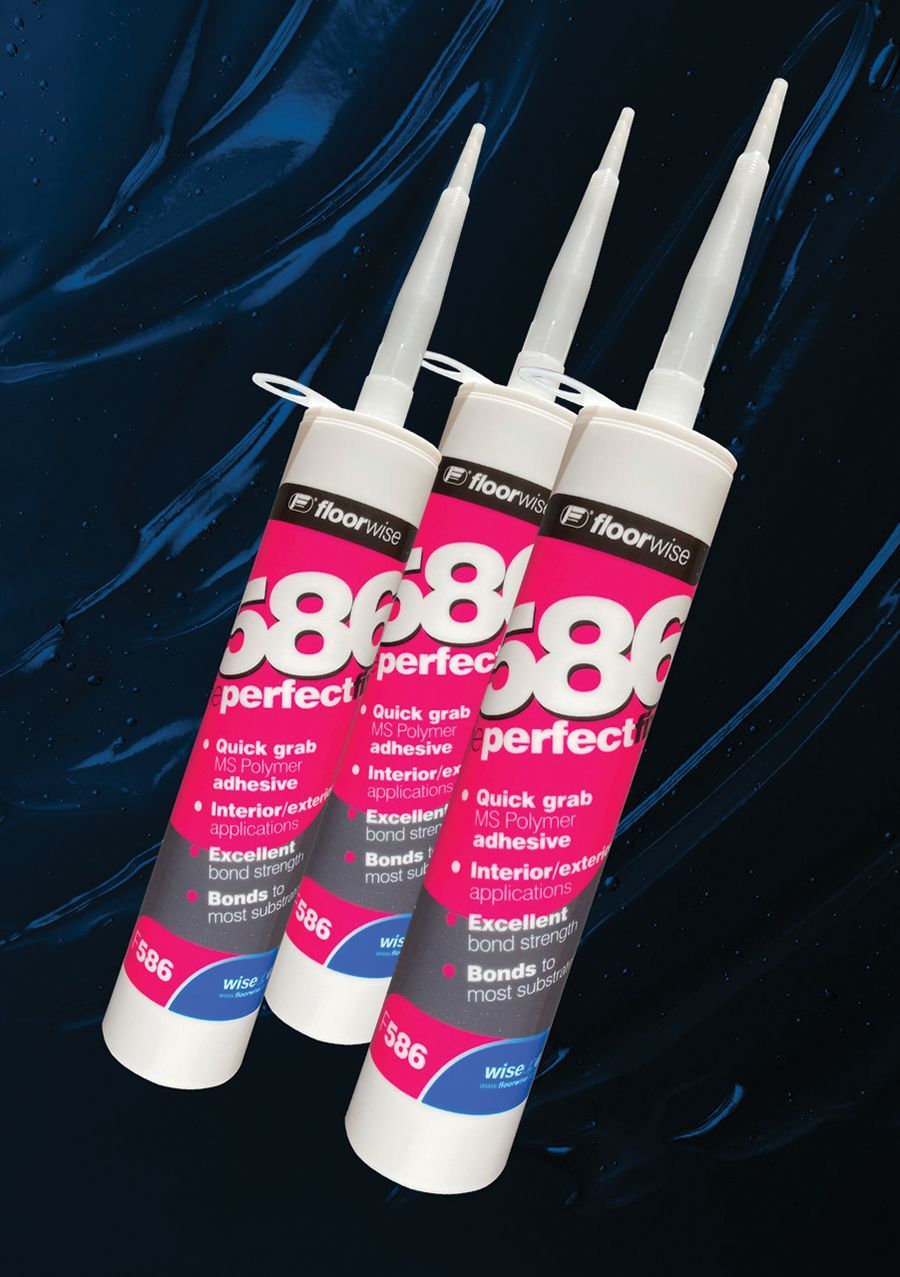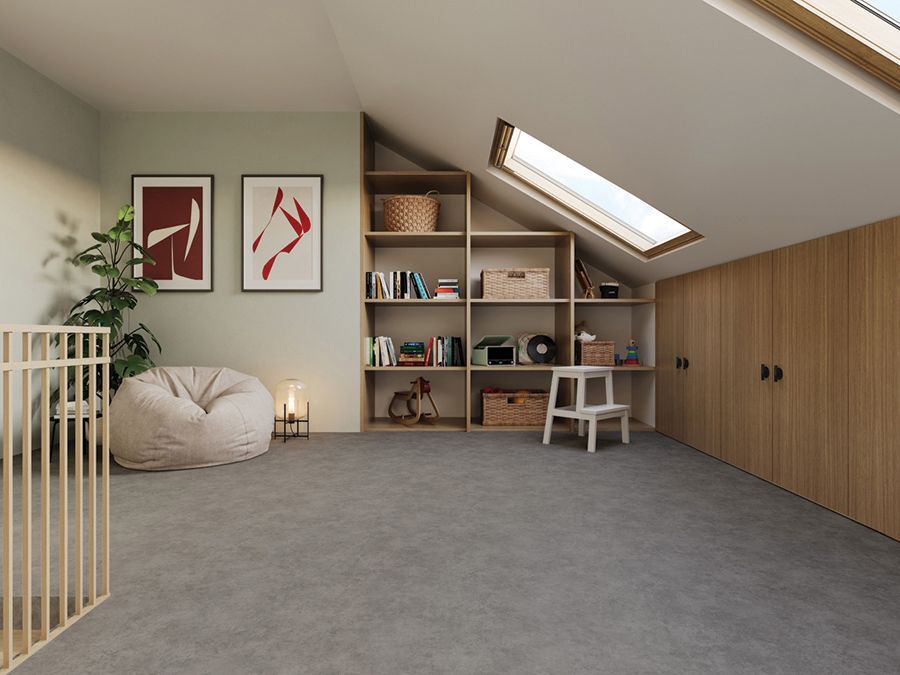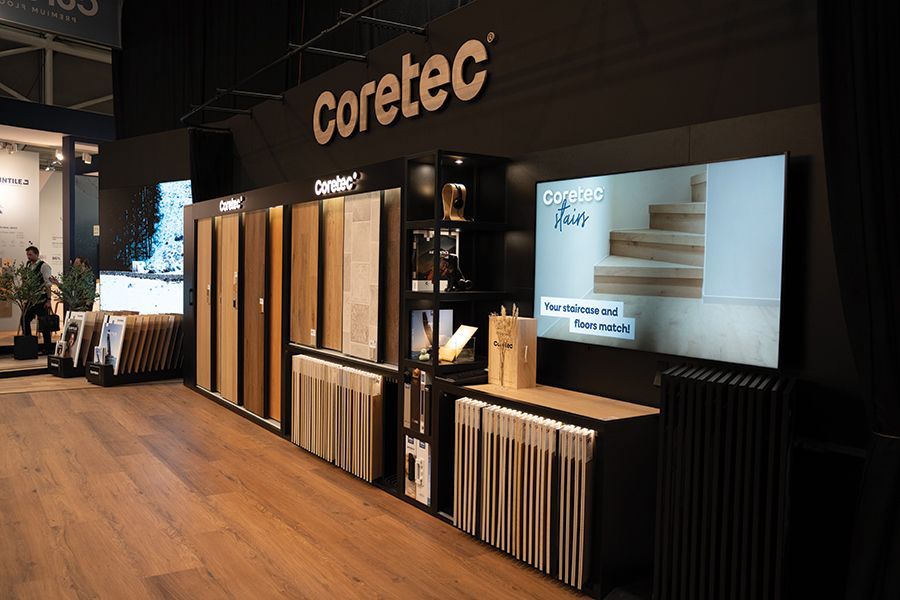Greener grass from sustainable synthetics


Artificial grass is booming in Britain
One of the strongest markets in Europe for the product, with some eight million square metres sold in the UK each year.
The pandemic lockdowns boosted the trend as two summers of perfect weather coincided with the enforced stay at home during lockdowns and it was reported that Google searches for artificial grass tripled in 2021.
Many new build housing developments in urban area are now delivered not only with fully fitted carpets and LVT indoors, but with synthetic lawns professionally installed across front and now even sometimes back gardens too.
But the turf wars among environmentalists attract extensive publicity. Famously, the Royal Horticultural Society banned “fake grass" at the Chelsea Flower Show in 2022 (not surprisingly as artificial grass has never claimed to be “horticultural”).
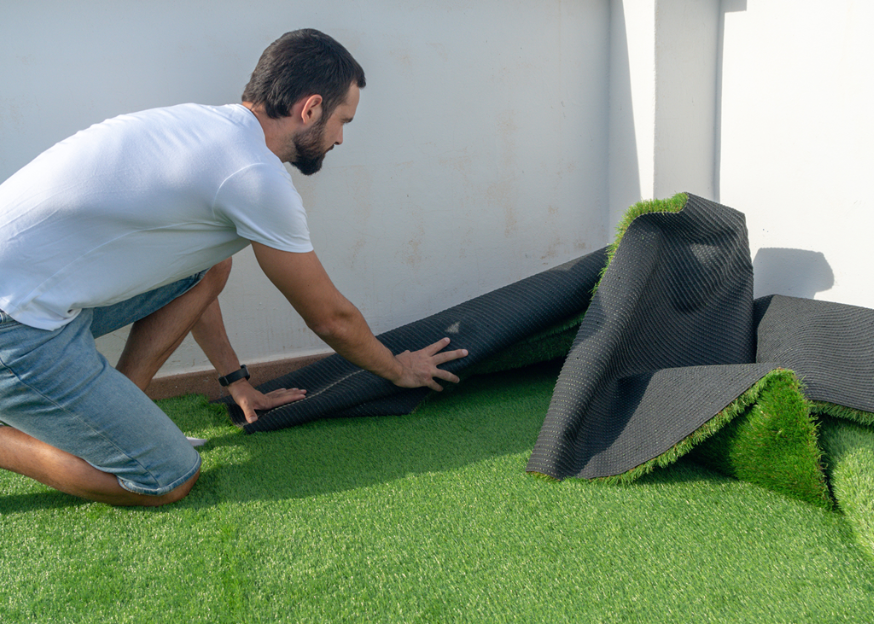
“Apart from the aesthetic advantage, artificial turf doesn’t need wasteful watering to stay green and needs no chemicals to encourage growth or petrol/electricity to keep in trim.”
Then the Advertising Standards Authority ruled against the more ambitious claims of smaller synthetic turf manufacturers in 2022 saying that “taking into account its whole lifecycle, it had a negative impact on the environment”. The Welsh Government talked about banning it last year but made a U-turn, recommending better education instead, and the UK government is on record that it has “no plans to ban the use of artificial grass”.
Their statement reads
“We prefer to help people and organisations make the right
choice rather than legislating on such matters. However, the use
of artificial grass must comply with the legal and policy safeguards
in place to protect biodiversity and ensure sustainable drainage, while measures such as the strengthened biodiversity duty
should serve to encourage public authorities to consider
sustainable alternatives.”
So the turf wars line up with one side worrying about landfill and lack of biodiversity, among other issues, and those in favour of synthetic pointing out that, apart from the aesthetic advantage, artificial turf doesn’t need wasteful watering to stay green and needs no chemicals to encourage growth or petrol/electricity to keep in trim.
Landfill is near the top of the negative agenda so the focus among industry leaders is on recycling and the top players are taking this responsibility very seriously with extensive research on the most sustainable approach.
Lano’s Enso collection, for example, contains 100% efficiently recyclable landscaping ranges. A mono-polymer approach - the turf fibres and the backing are made from the same polyolefin polymer – means the Enso recycling process is easier, more effective, more affordable and guarantees to yield a higher-grade recycled
end-product.
This month we focus on two of the other main players and their latest initiatives –
Condor and
Betap.
Condor Grass Repeat backing:
More sustainable and lighter
Condor are among the top market leaders with decades of experience, offering every imaginable artificial grass solution, from balcony grass to FIFA-certified football pitches.
“As a large artificial grass manufacturer we are aware that our ecological footprint on the world is large,” says Condor.
“That is why we conform to the 17 Sustainable Development Goals (SDGs) of theUnited Nations and are taking significant steps towards a circular world.
“Circular manufacturing basically stands for a vision where all materials are reused, so raw materials are no longer lost and waste no longer exists. This is currently not yet the reality of the day, but it is a development that is coming,” says the company.
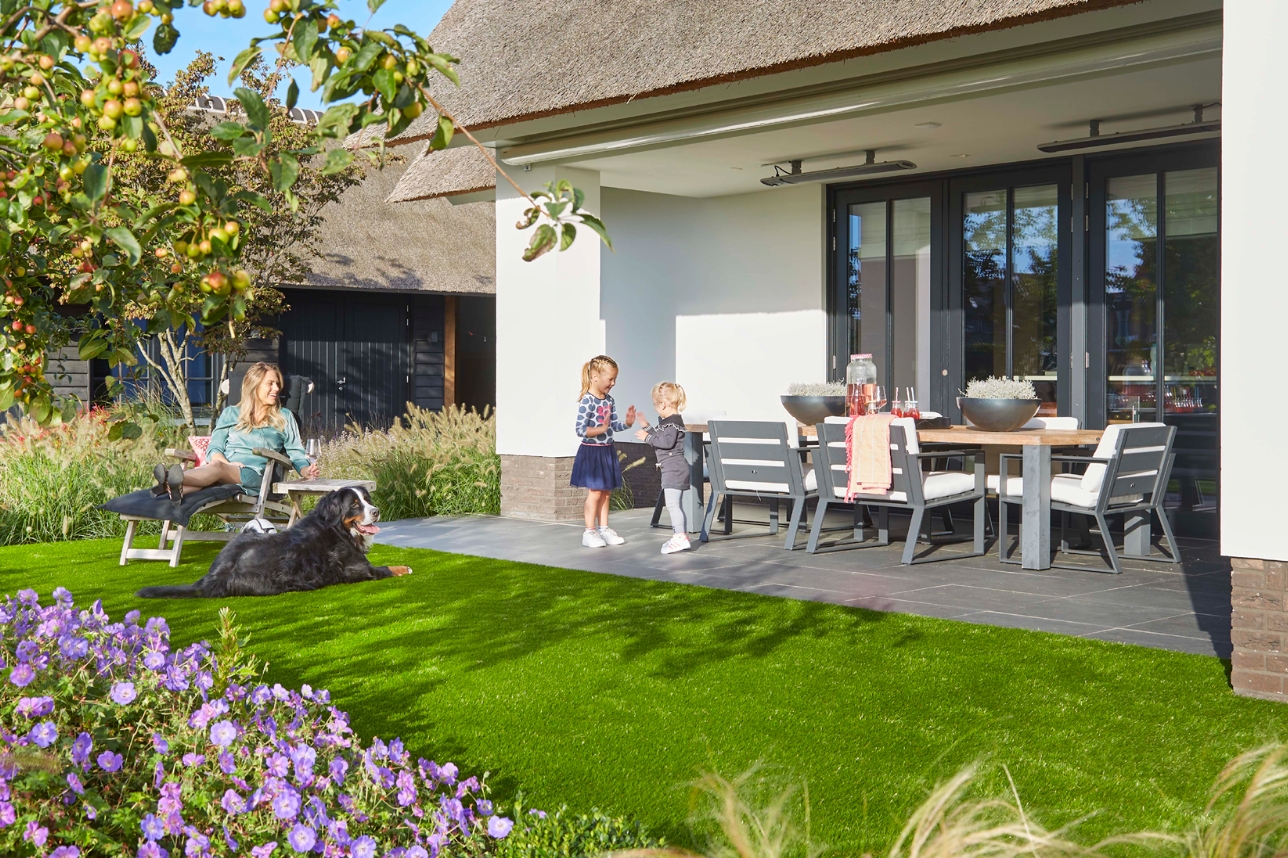
Condor’s latest step towards achieving this goal is the launch of Repeat, a “next level” backing for artificial grass, avoiding the use of latex. Repeat is made of 100% polyolefin and can therefore be more easily recycled. After years of use, the backing is easily removed, separated and shredded. The granulate can then be used for new products.
Repeat products have significantly enhanced water permeability
and are tested the EN 71-3 standards to ensure it is child friendly and pet friendly, free from harmful subsances. And, of course, the performance is uncompromising with superior flexibility and exceptional bonding. Also, the Repeat backing weighs around 20% less that conventional solutions, making lighter work of handling
and installation.
Mono-polymer approach
Embarking on a transformative journey in landscaping, trade professionals find a tailored solution in PARQ by Betap, a cutting-edge artificial grass range.
The collection, founded on the pillars of aesthetics, functionality, value, and sustainability, caters to the diverse needs across different project scales.
The standout NextGen collection, reflects PARQs unwavering commitment to sustainability, boasting an eco-conscious design with a mono-polymer concept and innovative dispersion backing.
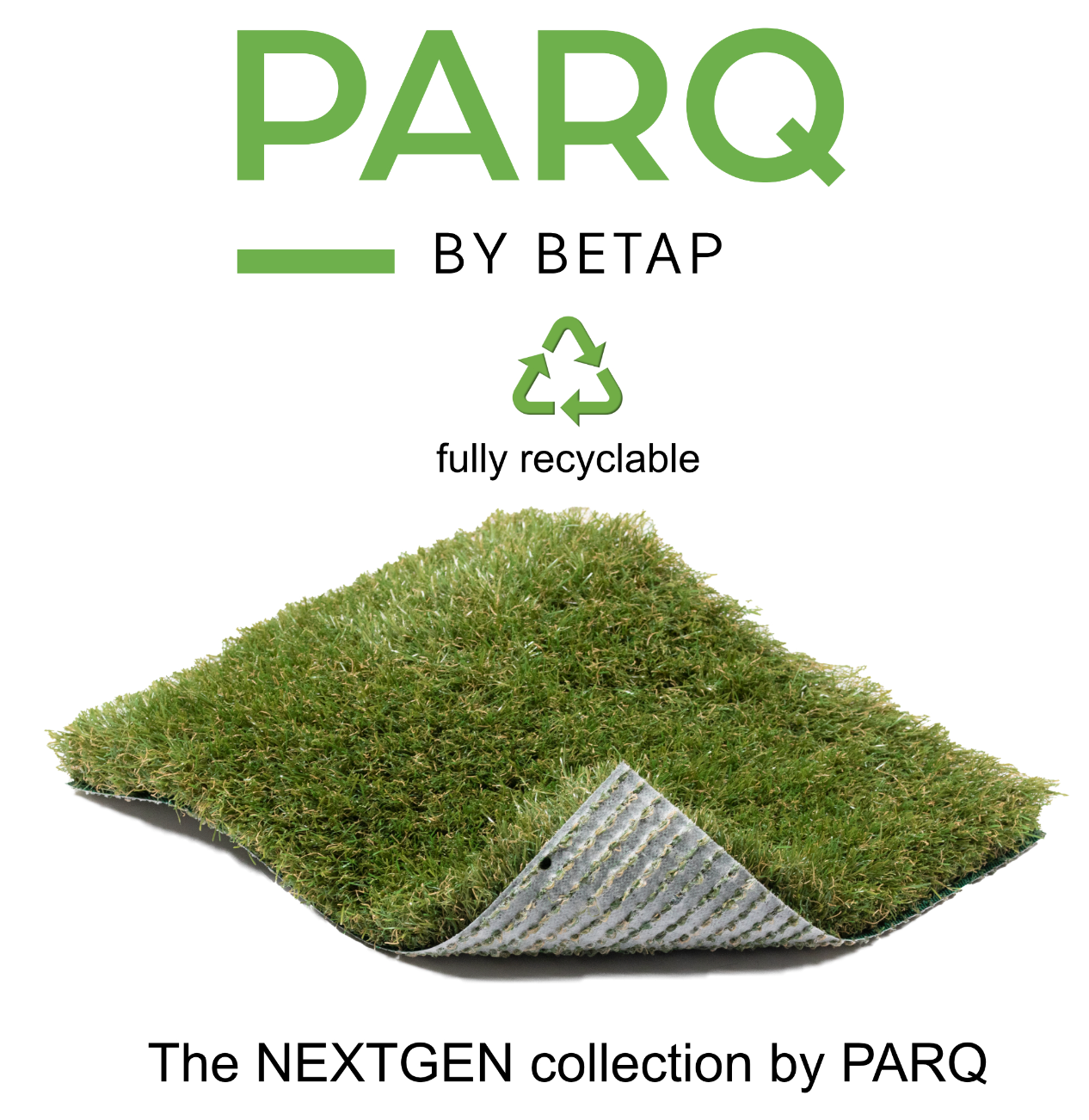
"The standout NextGen collection, reflects PARQs unwavering commitment to sustainability, boasting an eco-conscious
design with a mono-polymer concept and innovative
dispersion backing."
Acknowledged in the industry, NextGen sets a new benchmark for synthetic turf. Crafted for easy recyclability at the end of its life cycle, it aligns seamlessly with the discerning standards of trade professionals.
The availability of five-metre width options not only enhances the visual allure of installations but also underscores a conscious effort to minimise environmental impact.
PARQ emerges as a leading strategic, sustainable, and high-performance choice, reshaping the landscape of artificial grass.
For more information contact:
Betap • T +31 (0)38 386 1060 • www.betap.com
Condor • T +31 (0)38 477 89 • www.condor-group.eu/en/grass
LANO • +32 (0)56 65 40 00 • www.lano.com
Join the online community on:
facebook.com twitter.com pinterest.com
instagram.com youtube.com houzz.com

